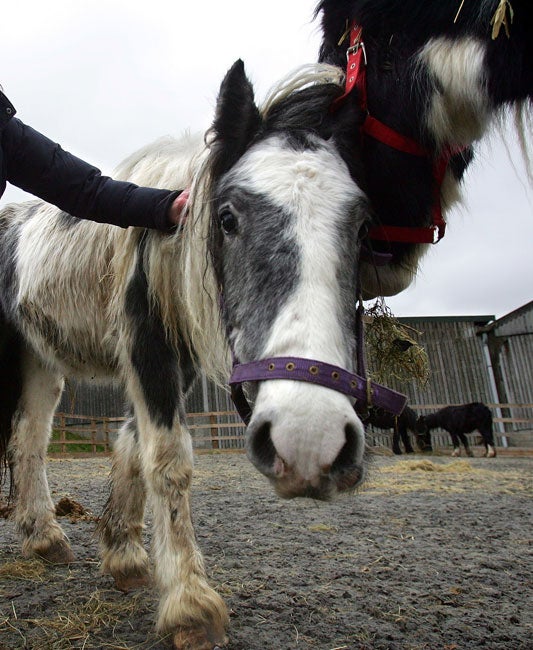Battle to save lives of horses after 'unprecedented' cruelty

Dozens of sick and malnourished horses were being nursed back to health yesterday following one of the worst cases of animal cruelty in recent history.
Animal welfare workers have been working through the night to save the 81 surviving horses that suffered severe neglect at a Buckinghamshire farm. It is believed that Spindles Farm, in Hyde Heath village, near Amersham, was being used as a site to prepare the animals for slaughter.
When police and RSPCA officers raided the property on Friday, they discovered some of the worst conditions they had seen. The British Horse Society's welfare executive Lee Hackett said that mistreatment on this scale was "unprecedented" in Britain, adding: "The true horror of the situation is only now becoming clear".
More than 100 animals were crammed into pens on the site. Of these, 81 were alive, but in an advanced state of starvation and ill health, while a further 31 were found dead. Three of the horses were suffering so badly that they had to be put down immediately.
The youngest of the animals found alive on the farm – a two-month-old foal that rescuers named Esther – is already showing signs of recovery. The animal welfare experts who found the young horse say it is "incredible" that she survived such awful conditions.
Susan Lewis, of the Buckinghamshire charity The Horse Trust, which took the most critical cases, said the condition of the horses was improving. "They were on death's door when the RSPCA arrived, but we're very hopeful now."
However, according to the trust, the neglect was so advanced that it will be a long time before they can be given new homes. "They will be with us for a number of weeks before we can even begin to assess them," said Ms Lewis. "For now we are just giving them plenty of vitamins, food and water, and giving them the chance to recover".
Some of the horses and donkeys were tethered so tightly to posts that they could not lie down. They appeared to have been abandoned without food and water, and were surrounded by the carcasses of those that had not survived.
For many of the animals the road to good health will be very long. A spokeswoman for the Redwings Horse Sanctuary, where many of the horses are being kept, said: "Some of them just won't let anyone near them at all. We have to put those through a gradual handling programme and let them recover before we eventually release them into a herd."
The RSPCA has launched an investigation into the horse-meat trader Jamie Gray, 44, who ran Spindles Farm and is believed to have paid as little as £1 for some of the animals on his property. If charged and convicted of causing unnecessary suffering to animals, Mr Gray could face a 12-month prison sentence and a fine of up to £20,000.
Animal Aid said the raid has highlighted the increasingly brutal trade in British horse-meat for the French market. Dene Stansall, a consultant for the charity, said it was an area of "great concern" to them.
Mr Stansall said that over-breeding was the root of the problem, because unwanted pets and racehorses become a nuisance to owners, who then abandon or give them away to unscrupulous dealers.
He added: "You can get former racehorses for free now, because they become a financial burden. "It's a growing problem that needs to be addressed by the Government or more and more cases similar to this will come to light, and more horses will suffer."
Join our commenting forum
Join thought-provoking conversations, follow other Independent readers and see their replies
Comments